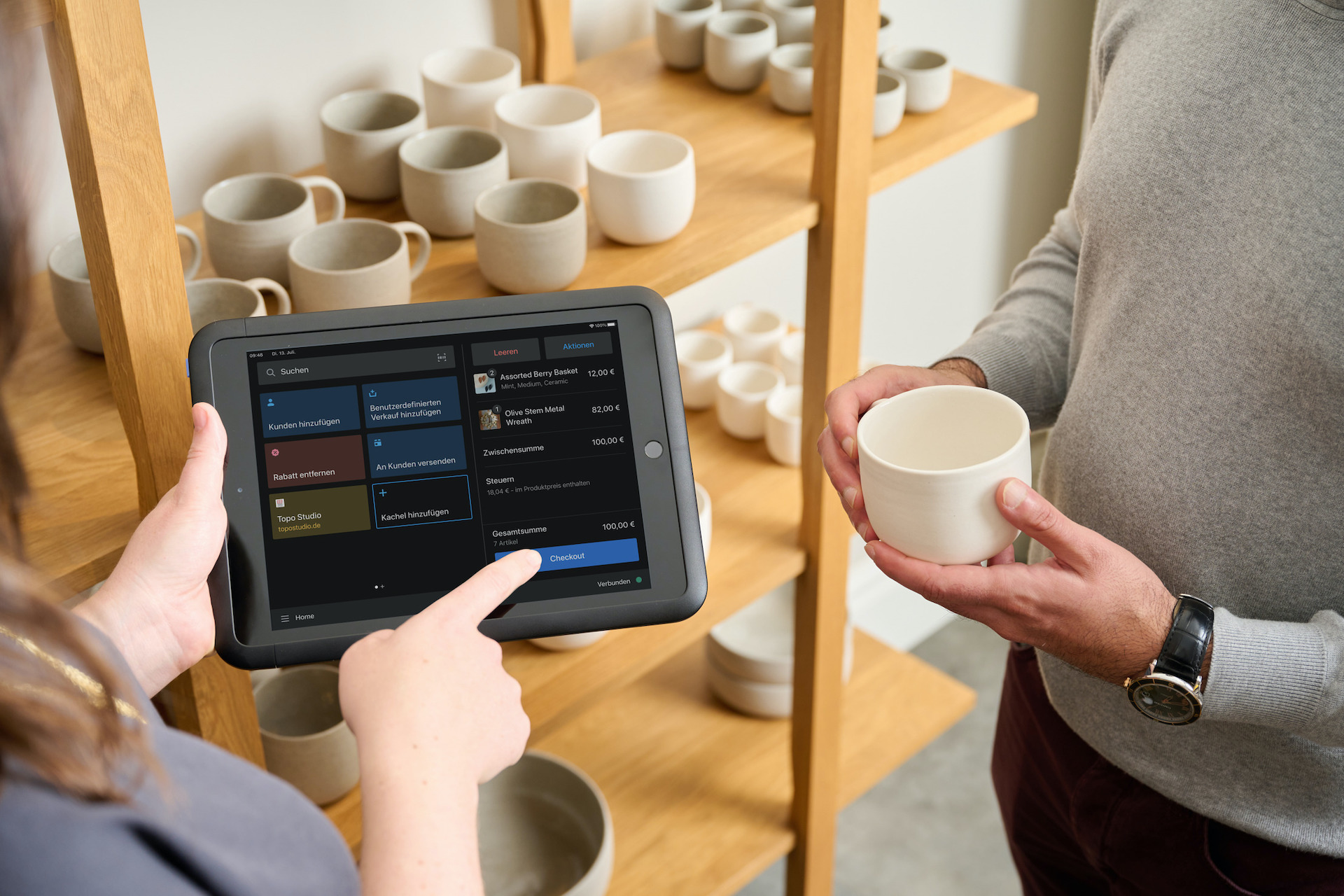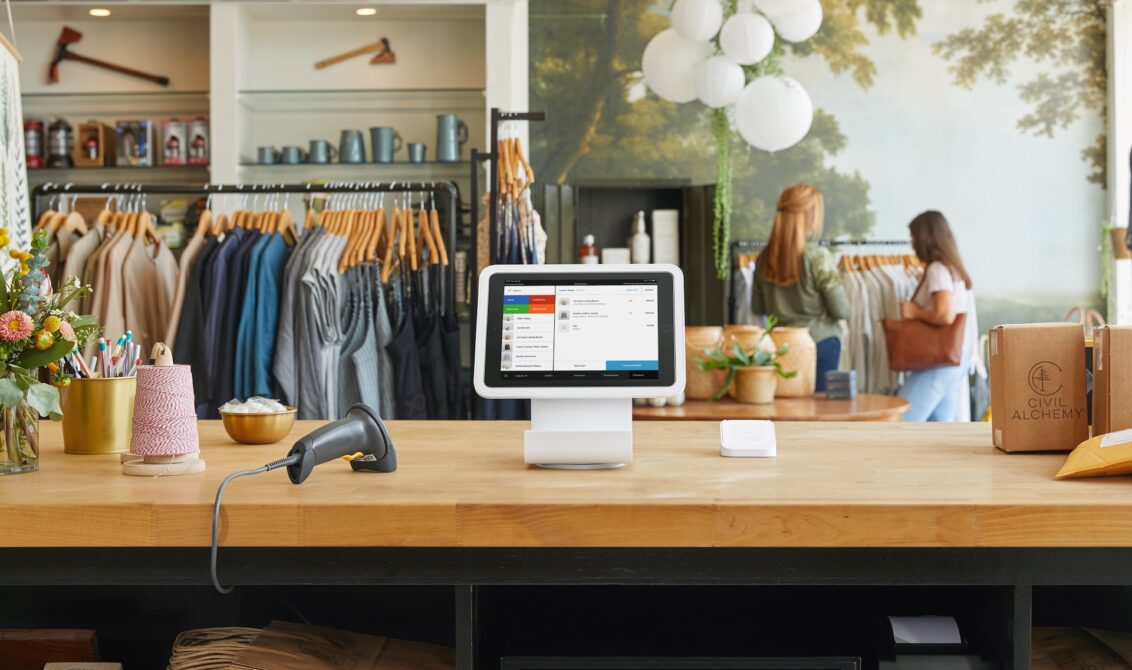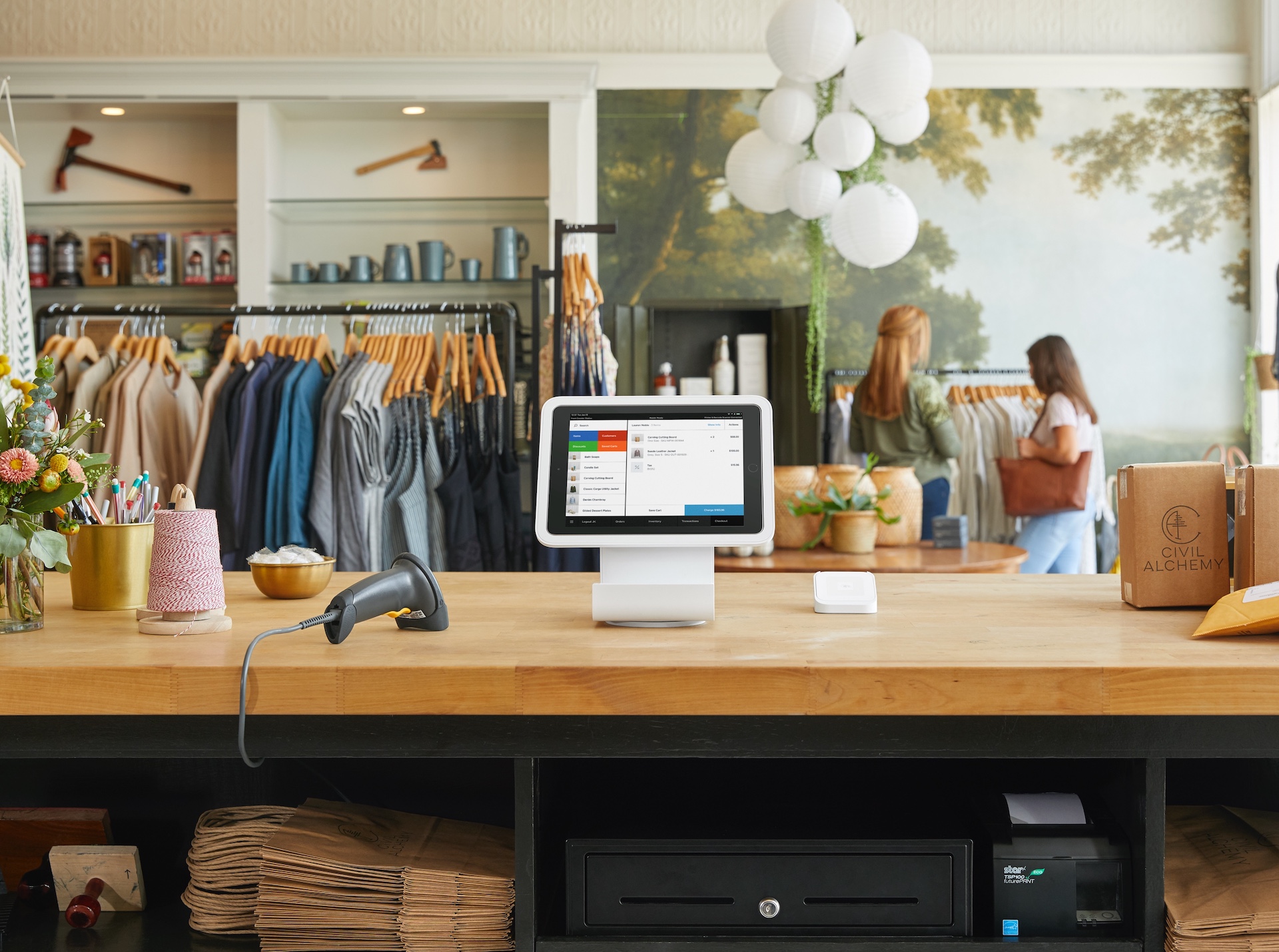Brick-and-mortar stores across the world rely on point-of-sale (POS) systems to process payments. Successful business owners know an effective POS system can be used for an array of tasks, from accepting credit card payments to keeping a track of inventory and customer data.
A typical brick-and-mortar POS system may include elements like terminals, chip readers, barcode scanners, and so on. Newer POS systems can even be run on smartphones, facilitate transactions through websites or apps, and securely store data in the cloud. In fact, there are several sophisticated systems designed to facilitate omnichannel commerce, providing a seamless experience whether the customer is making a purchase in person, through a website, or on an app.
With so many POS systems on the market, choosing the best one for your small business can be tricky. You need to choose a system that suits your business’s unique needs and offers the right feature set to streamline operations. You should also consider whether a system can easily integrate with pre-existing software and hardware. To help you choose the right small business POS system, here’s a look at the best options on the market.
Square POS System
Often considered the best POS solution for small, single-location stores and mom-and-pop shops, Square is easy-to-use and highly functional yet also cost-effective. It offers a free monthly plan for businesses and reasonable transaction charges. You can run the Square POS system from a smartphone and easily start accepting credit card payments. Square users can also purchase additional hardware including payment registers and terminals once enrolled in a paid plan.

Square’s software includes detailed reporting features for tracking sales, inventory, and customer data. The system can also draw up payment schedules and pay team members, though this will work better for smaller businesses with fewer employees. Square can run loyalty programs and generate gift cards, as well.
Key Advantages
- The free monthly plan and competitive transaction charges have made it popular and cost-effective for small businesses
- Extremely easy to use and can run from a smartphone
Drawbacks
- Not suited for large retail chains or established stores with thousands of products
- Lacks advanced features and hardware options
Lightspeed POS System
Emerging retail businesses often need a POS system that can grow with the business and handle complex functions when needed. Lightspeed meets this need, allowing businesses to manage inventory and sales from a single system across both physical and digital retail channels.
Lightspeed offers branded hardware that is specifically designed for brick-and-mortar stores, even providing custom features for restaurants and golf courses to meet their specific needs. For example, it has an iPad-based hardware system for restaurants with add-on devices like buzzers to alert customers when their table or food is ready and printers for generating receipts.
Lightspeed stores business data in the cloud and can sync all inventory and customer details across multiple physical outlets and e-commerce stores. It also offers features for managing shipping and returns.
Key Advantages
- Designed to efficiently integrate sales and inventory management across online and physical stores
- Ideal for growing small to midsize businesses looking for an expansive system at a relatively low monthly cost
Drawbacks
- Lacks robust integration options and customer relationship management (CRM) features despite claiming to offer enterprise-grade tools
- Not the best option for small, single-location retail outlets
Shopify POS System
Shopify is one of the most popular e-commerce software platforms in use today. However, it also addresses the needs of brick-and-mortar stores with a robust POS solution. The Shopify POS system allows users to manage inventory across different retail outlets and an e-commerce store.

Shopify is best-suited for small businesses who sell both in-store and online. It also offers loyalty program capabilities that map both online and in-store purchases.
Key Advantages
- Offers real-time inventory management across digital and physical retail channels
- Competitively priced
Drawbacks
- Not suited for large retail chains and enterprises
Vend POS System
If you want a POS system that scores high on user friendliness and offers a rich feature set at an affordable price, Vend should undoubtedly be on your shortlist. The Vend POS system comes with strong inventory management features, options for integration with apps like QuickBooks or WooCommerce, and the capacity to manage multiple in-person and online channels. It also offers well-thought-out features to track sales and employee performance.
Key Advantages
- Provides flexibility to choose your own payment gateway
- Scores high on usability
Drawbacks
- Limited marketing and CRM features
- Lacks customizations necessary for the hospitality industry
Revel POS System
If you run a big retail business and desire a top-of-the-line POS solution, Revel should be on your radar. It has the capacity to handle half a million barcodes — also known as stock-keeping units (SKUs) — with ease and can effectively handle multiple locations. Revel stores data in the cloud, but it can also operate without an internet connection. When it reconnects to the internet, it syncs the local data collected while offline with the data on the cloud server.
Revel is loaded with features, such as advanced inventory reporting options, gift-card creation, appointment scheduling, and QuickBooks integration. From online order management to a self-service kiosk option, Revel offers practically everything you would ever need to process orders from any retail channel. It also encourages its customers to purchase from its extensive range of hardware devices designed to ensure seamless performance.
Key Advantages
- Sophisticated software can be used to managed multiple stores
- Ideal for larger businesses
- Offers industry-leading inventory control and CRM features
Drawbacks
- Too costly for small businesses
- The application has a steep learning curve and can be difficult to manage
Final Thoughts
When selecting a POS system for your small business, consider the current size of your operation, present stage of development and future ability to scale. Always go with a system that can address the key issues and offer an effective solution without breaking the bank.
Blake Bobit has been an entrepreneur and business owner for over 25 years. He founded Solution Scout to provide the most helpful answers to questions about business solutions. Blake has helped businesses in many industries nationwide and enjoys the challenge of staying up-to-date on all things HubSpot.
© YFS Magazine. All Rights Reserved. Copying prohibited. All material is protected by U.S. and international copyright laws. Unauthorized reproduction or distribution of this material is prohibited. Sharing of this material under Attribution-NonCommercial-NoDerivatives 4.0 International terms, listed here, is permitted.










